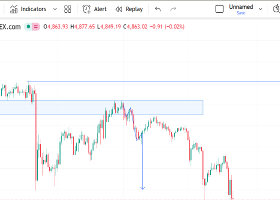The Eurozone periphery bonds gained Tuesday as investors poured into safe-haven instruments amid losses in riskier assets including equities and crude oil. Also, persistent lower inflation in Germany encouraged investors for safe-haven buying.
The French 10-year bond yields, which moves inversely to its price, fell 3 basis points to 0.243 percent, Irish 10-year bonds yield also dipped 4-1/2 basis points to 0.483 percent, Italian equivalent ticked 2 basis points lower to 1.263 percent, Netherlands 10-year bonds yield tumbled 3 basis points to 0.113 percent and the Spanish 10-year bonds yield slid more than 2 basis points to 1.063 percent by 10:30 GMT.
Germany’s inflation rate continues to be at a low level in August. According to the Federal Statistics Office, Destatis, the country’s consumer prices dropped in sequential terms, but rose on year-on-year basis. In annual terms, Germany’s consumer prices rose 0.4 percent in August. The inflation rate gauged by the consumer price index continues to be at a lower level. Inflation gauged by the harmonized European Union standards dropped 0.1 percent in sequential terms and accelerated 0.3 percent year-on-year.
As in the earlier months, low inflation in Germany was mainly because of the drop in energy prices, which fell 5.9 percent. Consumer gained particularly from the prices of mineral oil products that dropped in August on a year-on-year basis. Other energy products’ prices also fell year-on-year. Only exception was electricity prices that increased 0.7 percent year-on-year. Stripping energy prices, the inflation rate would have been 1.1 percent in August, stated Destatis.
Moreover, the Eurozone bonds have been closely following developments in oil markets because of their impact on inflation expectations, which are well below the European Central Banks target. Crude oil prices fell more than 1 percent after a number of rigs digging for oil in the US rose again last week. The International benchmark Brent futures fell 1.69 percent to $47.19 and West Texas Intermediate (WTI) dipped 1.68 percent to $45.11 by 10:30 GMT.
In addition, the ECB meeting passed without any policy changes or signals on Thursday last week, defying expectations of an extension of QE. We now expect that to be announced in December. Also, reaffirmed that urgent pace the quantitative easing will run until at least March 2017. The ECB made few changes to its economic forecasts, leaving its key 2018 CPI forecast at 1.6 percent.
While President Draghi maintained that economic risks remain to the downside, he said growth was steady and the data show resilience (presumably to Brexit). The central bank presumably felt little pressure to act, especially with current inflation running in positive territory. Nevertheless, with even core inflation running at less than half the ECBs target of slightly-below-2 percent its easing bias will remain for some time.
Meanwhile, the pan-European STOXX 600 index was up 0.08 percent and the euro-area blue-chip gauge the STOXX 50 climbed 0.12 percent, the PSI20 Index fell 1.02 percent, the DAX traded 0.40 percent higher and the CAC-40 rose 0.15 percent by 10:20 GMT.


